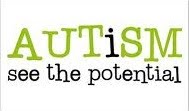This is what I believe, today.
|
I'm working out my faith as one who hears the MADWOMAN's call. This is what I believe, today. I am a hot pink heretic. I worship god as the MADWOMAN in the attic. I honor and heed the Divine according to a metaphor of female madness versus a manmade structure of order and restraint. I honor and heed Her call in my emotions, the natural world, the good work of both cultural heroes and the unsung volunteer, my own intuition and discernment, in books I read. I am a hot pink heretic. I honor and heed teachers and prophets in the myriad places they appear. I receive their guidance in holy and secular texts, each sacred in its own way. I observe their good work in documentaries, newsletters, and intentional communities. I support their work with donations and sharing the good news of their good work. I aspire to live more like they do. I am a hot pink heretic. I believe in repentance and redemption of ordinary human lives in our ordinary world. I believe we honor the Divine best when we tend to each other, in all the ways. I believe that “all the ways” includes immediacy of family and friend circles, the wider circles of neighborhoods and municipalities, the circles of governance and economics, the circle of our living planet. I am a hot pink heretic. I am here, with you, in a messy world where very little and very rarely is anything crystal clear, black or white, good or bad, in or out. We are in this messy ambiguous world together. We live with wise teachings and wise teachers who illuminate how we all might live well together. I am a hot pink heretic. The manmade structure of order and restraint holds me against my will. I moan and bellow for how it hurts me. I call out to you, in hopes that you feel it, too. Do you perceive the misfit of this way of life, the rule of power, the old beliefs and practices that benefit so few and have been warned against by so many over centuries of prophecy and teachings and assassinated wise people? I am hot pink heretic. I hear the MADWOMAN’s call. “Burn it down.”
0 Comments
I ugly cried, last night. I'm grateful for a partner who comforts me. I'm still a little shaky, today. I'm grateful for a quiet house and softly snoring kitties. I look out over the computer monitor, now, to see patches of blue sky and a brightly lit backyard bearing signs of spring. The pandemic, the changes in our routines and movement, the people falling without a safety net, the essential workers on all fronts, the powerful accepting collateral damage in exchange for wealth and security... the situation is so BIG. I am so small. I am ineffective. I am isolated and meaningless. These facts and feelings spin and rage in my mind and my emotions. My sleep is one long nightmare. My body is aching and tired. The storm inside me will pass. It has before and it will again. For now, I tend myself gently with nutritious food, a warm shower, napping in the sunshine, and so much gratitude that I can tend myself in these ways. Making some meaning of the BIG storm, for me, is not contained in taking care of myself, my family, my home... Making meaning is reaching beyond my yard. I am small. I am not ineffective or isolated. I do see both people in need and people in power. I am not content, not really. I'm looking for ways to make a difference, make daily life different, liveable, in the midst of crisis, and between them. This is not the only storm.
I think about meaning-making, or assigning significance and definition to our experiences and events in our lives, as a largely communal or collective phenomenon. There is an element of making sense of things as individuals, but even that doesn’t happen in a vacuum. We make sense of things through the lenses of our family of origin, formative experiences, spirituality, location in the socio-economic strata etc. And that stuff is communal or collective. Given that everyone is stuck at home, right now, I’m wondering how people are making meaning out of the pandemic and all its associated impacts, influences, and adjustments to “normal” life. Based on what I’m seeing online, the place for communal activity these days, it looks like there are two main avenues into this question. Folks starting at the individual and household sphere, and folks starting at the societal and political sphere. I don’t have a judgment on one or the other approach. I think, ultimately, we’ll all end up trying on both positions - and more. When I consider this a level deeper, I’m reminded of a lesson from grad school - every community has its own “common sense.” Or, there isn’t a broad brush universal common sense for comprehending events and acting on that understanding. This was struck home to me in an ethics course exploring the meaning of justice. A classmate, a woman of color, explained that in her community there is “no justice, there’s just us.” In her example, calling the police to respond to an incident isn’t necessarily common sense, because police involvement may escalate the situation. The common sense is to solve the problem internal to the community. What is the common sense or meaning made of the covid-19 pandemic in our communities? It’s probably too soon to tell, as we can find disagreement within a given household regarding what it all means and how to act. Even so, I want to wrap my head around it. For me, that means trying on a variety of perspectives and reading accounts from a variety of communities so that I can perceive the spectrum of common sense. I’ve started at my individual and household level. That’s my most immediate experience and where I can assert some noticeable agency. In myself and in my home is where I feel the most intense emotions about this experience, address the most immediate changes to our routines and expectations, and recognize the advantages and challenges of our current life together. While broader meaning making is still in progress, for now I know that we have a safe comfortable home, simple pleasures, and gratitude. Our immediate needs are met. We’re adapting to competing priorities for jobs and schooling. We wash our hands, a lot. We make few trips to the store for necessities and treats. We savor our treats. Almost simultaneously, I thought about our neighbors, the local food banks, grocery store workers, nurses, and then the forces at directing and bearing down on them (all of us) from the government and concerns for the economy. If I feel pressure to keep pace with my job and keep pace with my son’s academics, I imagine that pressure is more intense for folks with essential jobs and their own children to tend and to teach. What feels like an unwieldy challenge to me, might be untenable for a mother with fewer resources. Starting with just these two perspectives, I’m noticing that while “back to normal” might feel very good in my home, it might be out of reach, and blatantly damaging, for folks in other locations of the broader context. The common sense in those positions may be a call, a conviction, for a new meaning and a new context altogether. I have no idea what that really means, today. I am curious to learn more. Even as I’m sensitive to what changes and new common sense it could mean for me and my household.
I’ve been learning and inconsistently practicing new habits to improve my health in the last couple of years. My naturopath, desperate to get through to me, once asked me if I wanted to “be here.” As in, did I want to be alive. I took the question home, thought and journaled about it for a week or so, and decided that yes, I want to be alive. I wanted to be alive for my son, especially. Now, I add to that my partner and future husband. My friends. My garden. Do you see the pattern there? It’s a small and personal world that I live in and live for. I wonder, is that really enough to make my life worth living? See, I was raised an Evangelical Christian in the United States in the latter part of the 20th Century. And while individualism, trickle-down economics, and oat bran bear no resemblance to the Gospel, somehow religion was tangled up with the contemporary culture. In the midst of the dissonance, the religion identified itself through symbols of personal piety like, proscribing sex outside of heterosexual marriage, campaigning against abortion and anyone associated with them, and conflating the AIDS crisis with the so-called "abomination" of homosexuality. But the text of the gospels, whether taken as a summarized whole or proof-texting parts, doesn’t provide a lot of instruction on personal matters. Rather, it dwells on issues that affect the collective and show up publicly. Issues like poverty and greed, genuine hospitality for society’s outsiders, and otherwise living one’s life in contrast to the dominant culture’s power structures and definitions of worth. As a child, I accepted the faith and its religion in earnest. But disconnects between the words we said as a congregation and the way we lived in our homes and daily lives, occasionally broke through and concerned me. Those concerns developed into a heavy tension as I matured. If the spiritually faithful were in action unfaithful, what was the point of the faith? If the congregation lives according to the prevailing culture rather than its proclaimed savior, which demonstration of their faith is true? Ultimately, I judged culture the winner in this competition. It was a relief. I cut loose from the tension. I freed myself of the obligation to follow Jesus’ example. I chose values like personal security, private property, physical health, and my immediate relationships. But Jesus’s life, and that original tension, hovers around me. Jesus didn’t preach about raising children, saving for the future, or delaying death through proper nutrition and daily exercise. Those things are cultural and they still matter to me. So I don’t measure up to his example. I’m making no effort to measure up and simply won’t. Is there a way to live within the tension of the dominant culture and the example of Jesus? Something more than financial donations and social media posts denouncing the powers that be. I really don't know. In the meantime, maybe I can register some faint shimmy on the Richter scale of practice. That, to me, is the path to a life worth living.
oh friends! good news! I received my offer letter today for a terrific new job at a local nonprofit called Thrive by Five. I'll be the Senior Administrative Assistant, supporting the Deputy Director and Community Partnerships as well as coordinating the administrative staff. I start in two weeks. Wish me luck!
C. Jane Kendrick is a Mormon feminist and blogger that I've been following off and on for a few years. I've been checking her blog recently, waiting for her response to the Ordain Women controversy and subsequent excommunication of Kate Kelly from the Mormon Church. As someone concerned about and committed to gender equality in our spiritual systems, this event got my attention. Kendrick gives us a heartfelt, thoughtful consideration of the issues and people involved in today's post: To My Mormon Daughters.
In writing the essay as a letter to her daughters, Kendrick owns that she is a feminist who cares deeply about her faith and her family. She is seeking new and more opportunities for women to serve in the Mormon church, while maintaining a deep, lived appreciation for the spaces she currently inhabits. She holds her Mormon sisters in high regard and values her engagement with them. Kendrick presents the essay in three sections. First, the research and relationships that informed her position on the issues at hand. Second, her affinity and affection for people who courageously express their hearts even when their ideas are unpopular. (I'd include Kendrick in this group.) Third, her belief that the ordination of women in the Mormon church won't come about until more women really want it. My favorite part of the essay comes near the end. Kendrick shares her conviction that there is "no scriptural or doctrinal declaration" proving that God does not want women to be ordained. She continues affirming the call to bring before God what is on our hearts. "Ask, knock, ponder, pray, have faith, have hope." Finally, she compares God to a loving parent who gives their children what their hearts desire, when it is "inherently good and safe." I love this essay because it is brave and heartfelt. I love it because Kendrick writes it to her daughters about who she is today and the vision she has for their future. I love it because it resonates with my own heart's desire for more opportunities for leadership and inclusion of women's perspective and experiences in the Evangelical Christian church of my youth. I love it because it illustrates Kendrick's commitment to stay in the church she loves, simultaneous to her work for something more for that church. It's a commitment that I couldn't make and I'm impressed and humbled by her example. 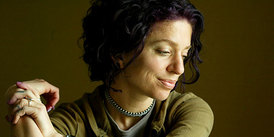 There's a great line in an Ani DiFranco song, Alla This, that has me thinking. Ani sings, "…and I will not rest a wink, until the women have regrouped." It's got me wondering - where do I see women grouped? Are we organizing in the way/s that Ani has in mind? How have we grouped ourselves historically versus today? 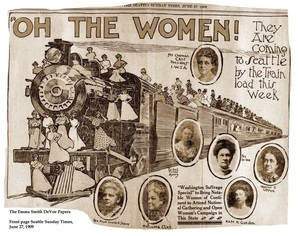 I suspect that Ani is referring to political organizing like we saw with the Suffragettes' efforts to gain the vote for women or the efforts of feminists in the 1960s for the Equal Rights Amendment. I'm not that politically savvy these days, but I don't see the headlines declaring that same kind of organizing today. Women organizing does show up in social media around specific events and some key issues, for example: the #YesAllWomen campaign following Elliott Rodger's violence and murders in CA, the #BringBackOurGirls campaign following the mass kidnapping of 234 Nigerian female students, and Sheryl Sandburg's #BanBossy campaign to foster leadership skills and confidence in young women. And I love what I'm seeing online from Body Positivity folks in terms of promoting images of non-airbrushed women and declaring the beauty and worth of all body types. Do social media campaigns count as organizing? In the new era of "slacktivism" does social media have the same (or better or worse) effects as political demonstrations and legislation? To implement real, lasting change in our society we need to change hearts and minds, not only words on paper, even very important pieces of paper, like amendments to the Constitution and our laws. What role, if any, does the virtual world play in the big picture of awareness, understanding, and social change in the real world? My graduate school training in social change suggests that change happens at the level of people talking together and builds from there. It ebbs and flows, for sure, and social ills adapt into different forms as well (consider that we now condemn lynching young black men, yet we warehouse them in our prisons instead?). But change is cultivated at the level of personal change, people living experiences or hearing stories that alter their expectations, assumptions, and common sense about the social world. My formative years as an Evangelical Christian instructed me that people need to hear the good news of the gospel, hear the stories that can change them, and that it's our responsibility to speak up and create those opportunities for change. It's uncomfortable work that often falls on deaf ears when it doesn't provoke out right retaliation. Frankly, once I reached my teen years, and had a sense of social behavior, I really wasn't into evangelism. It felt rude, forced, and sort of unfounded - surely everyone I met already knew about Jesus and could make their own private decision without me. But does the same apply for all social issues? What is the "right" way to share our societal "good news" and bring change to individuals and communities? How simple or difficult is it really? Where and how do I join the conversation on the issues that matter to me? 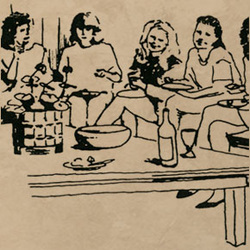 I've baby-stepped my way in and around women's organizing all my life. As a child, I participated in girls' groups organized with and by women around the tenets of our religion. In college, I organized a women's group around the issues we were living with as young women on a Christian college campus. In the last ten years of graduate school and motherhood I've participated with anti-war groups like Women in Black and CodePink, as well as women's spirituality groups, like my current pagan circle. In many ways, these groups felt like "preaching to the choir." They consisted of like-minded folks gathering and sharing like-minded ideas with each other. Although Women in Black and CodePink are both groups with public presence, it's not clear to me what our influence may have been on social change. Maybe it is enough to be a public presence and bear witness that there are other ways of perceiving, interpreting, and responding to situations that our government and our society have gotten us all into. Even so, most of the groups I'm aware of and participate in are private and personal. Women sitting together, talking, discussing books, sharing their lives. I believe that these groups have value, privately and publicly - and may be/become the women regrouping that Ani sings about. In these small, private groups women start to see patterns of what is not ok with us in the broader social world. The next step is to speak up into the public world, describing what is not ok and suggesting, promoting, and supporting alternatives. My pagan group gathers in part as a means of recognizing and undoing the negative we've experienced in male dominated organized religions. Here's where "preaching to the choir" works - there's resonance in an affinity group that says, "me too, I experienced that too, and it's not ok." Alienation is replaced with validation and a sense of sanity; a new common sense is established for the participants. Additionally, our group practices new forms of spiritual expression together. We do all of this privately, in each other's homes. Over the years of meeting we've come to know each other better, learned to trust each other, and started to share more both about our private lives and our public lives. We are becoming a source of vitality and support for each other in both spheres. Today, we are likely to circulate a petition for signatures around the group sharing in political activity together or participate together in events hosted by larger, public women's groups like Women of Wisdom or Gaia's Temple. We're hardly a force to be reckoned with, in terms of social change around women's spirituality, but we have significance in each other's lives and our immediate community. The Feminists of the 1960s and 1970s used a mobilizing phrase, "the personal is political." I think that's another piece of what Ani is singing about in Alla This. I think she's looking for an awareness among women that what we experience personally is derived from and has implications for the public, political sphere. It's another call to mobilize women to recognize the lived conditions of our lives and speak up for change. Challenges in our lives are not merely our own dumb luck but are also reinforced/manufactured by public, collective structures that have public, collective solutions. If those solutions are to be cultivated, then we need voices identifying the ills and proposing and supporting the alternatives. A small, private group like my pagan circle inhabits the gray area of "the women have regrouped." We've identified personal challenges with a public or collective status quo and designed a largely personal solution in response. Maybe that's where other women have grouped themselves for the time being while scrambling to make ends meet, experiencing discouragement with the public and political processes of change, seeing how far women have already made it, and feeling unclear on the changes yet to be made. Both of the mediums for social change that I've been involved with are rumored to be dead or dying - the Church and Feminism. I see it more as a cycle of renewal and rebirth as these two social forces adjust to contemporary expectations, new collective common sense about human rights and political processes, competing understandings of which social changes are needed, as well as age old American individualism. Today's feminism is not only about changes for women, though those needs certainly remain as we examine violence against women, health care designed around men as the norm, leadership issues, faith communities, living wages for single mothers and others, affordable, high quality childcare…, but also for social change that affects men and children (and animals and the planet…). Women offer a different perspective coming from a different lived experience of social conditions. We can offer particular insight into the consequences (intended or unintended) of current social and political trends. I think the gray area is an ok place to be, right now. It provides a safe place to start making change. It serves as an incubator for the next iteration of contemporary social forces, like the Church and Feminism. The gray area is a margin or liminal space where we are secure to claim, "yes, this is working," and to identify, "whoa, no way, that doesn't work, it needs to change, we need XYZ…" Here, we adapt and experiment with new ways of being together. The next challenge is to bring those ideas and methods into the broader social collective, in both the virtual and real worlds. I love my little pagan circle in the gray area. I am grateful for the strength and encouragement it offers me personally and the alternative it provides to mainline faith communities. In my pagan circle I feel seen and heard, I experience affirming resonance, and practice our own creative solutions. I carry that with me as I interact in my daily life of job and family and friendships. I develop a fresh lens for viewing the world and a clearer voice for speaking my/our truth. Ani may not be able to rest but I suggest that she could grab a catnap - there is certainly a lot of effort ahead. But the women are regrouping in this transitional social ecosystem. Preparing to grow from the margins into the main, like wildflowers and herbs, bringing beauty and salve to abused landscapes. Our voices are made stronger individually and collectively as we are supported and stretched in the liminal gray. |
About Jenni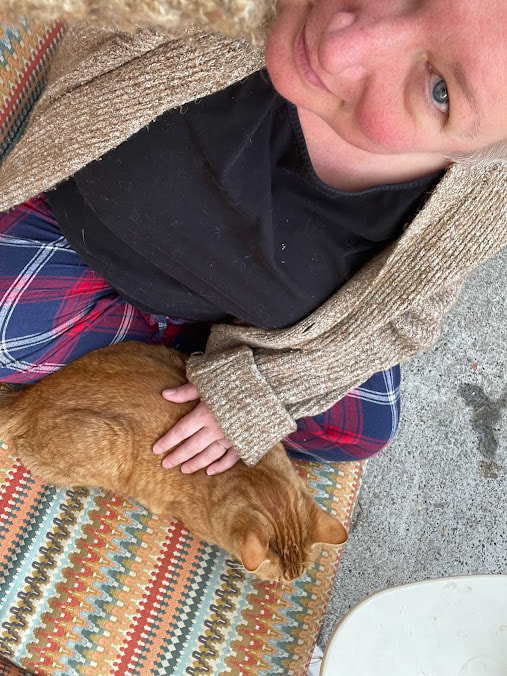 God is the madwoman in the attic.
I'm camped out on the threshold with my journal, camera, & plenty of snacks. God is the madwoman in the attic.
I'm camped out on the threshold with my journal, camera, & plenty of snacks.
Categories
All
Out of the Attic
This blog started in 2006
on Blogger as Out of the Attic. I began posting here in April 2014. Please visit the original site for the rest of the story on topics like: |
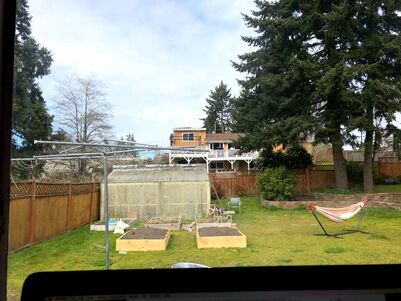
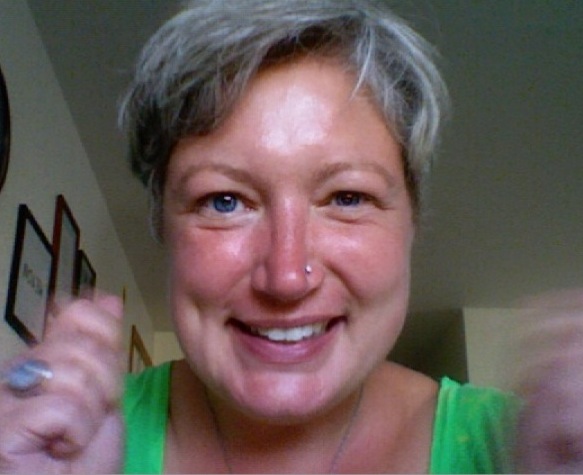
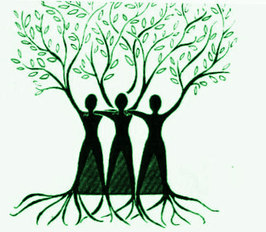
 RSS Feed
RSS Feed
